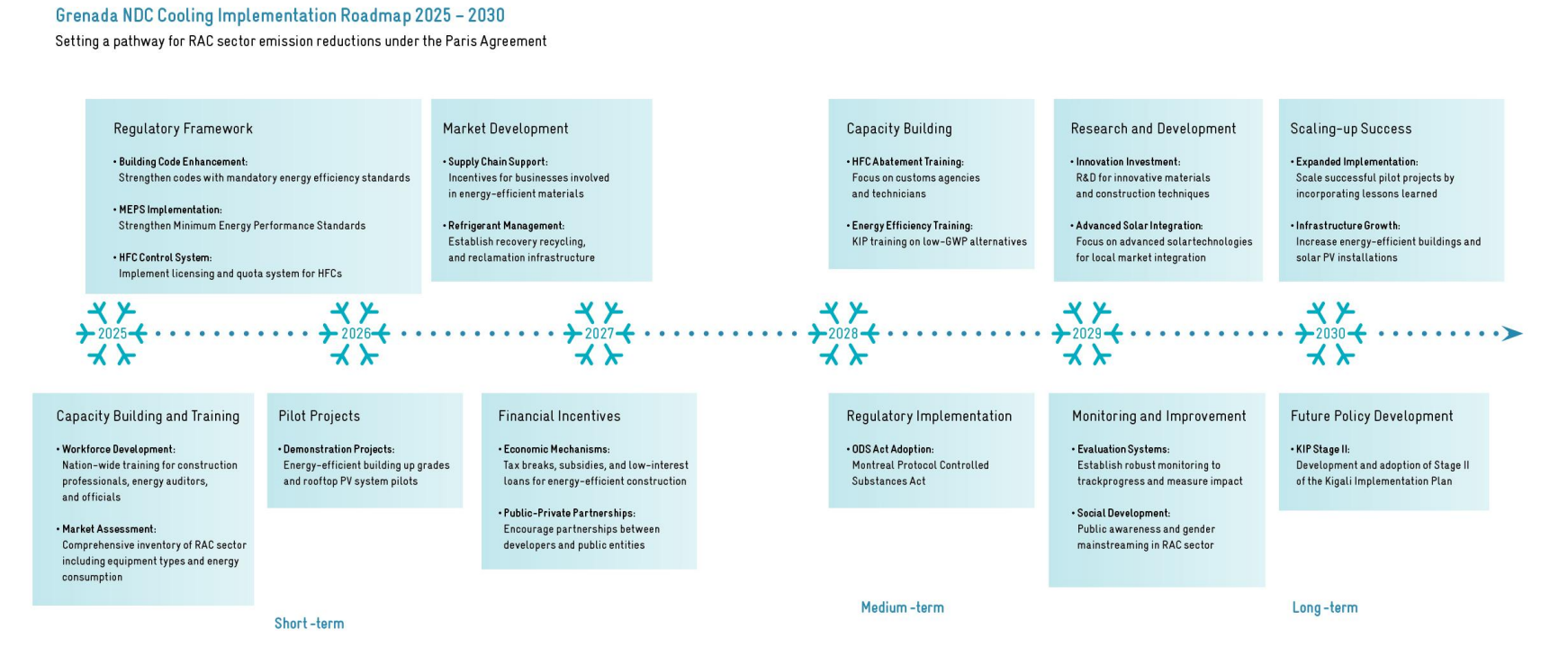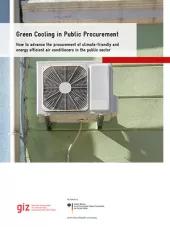In Grenada, the urgent need to address climate impacts demands a focused and strategic approach to mitigation. The National Cooling Action Plan (NCAP), launched in 2021, provides the analytical foundation for integrating sustainable cooling into Grenada’s NDC process.
Developed with contributions from NewClimate Institute and partners, the NCAP offers quantitative and qualitative assessments of mitigation actions in the buildings sector and identifies four key action areas:
- Building performance standards.
- Improving the energy efficiency of refrigeration and air conditioning (RAC) appliances.
- Transitioning to natural refrigerants.
- Cross-cutting measures, including communication, capacity development, and enabling policies such as sustainable public procurement, financial support mechanisms, certification of RAC technicians, and an appliance take-back scheme.
These areas form the backbone of Grenada’s strategy to reduce emissions in the RAC sector and promote sustainable cooling. Grenada´s approach is mitigating climate impact while simultaneously enhancing adaptation, resilience, and local economic development.
In 2024–2025, the Government commissioned the development of an NDC Cooling Implementation Plan to roadmap the NCAP’s policy recommendations for the 2025–2030 period. The roadmap was jointly developed by NewClimate Institute and HEAT GmbH and in close collaboration with Grenada’s National Ozone Unit (NOU) at the Ministry of Climate Resilience, the Environment and Renewable Energy. It identifies specific mitigation actions, assigns responsibilities to key stakeholder groups, and identifies potential financing sources.
The successful implementation of this roadmap will rely on three critical pillars:
- coordinated policy action,
- sustained investment and,
- strong collaboration between national stakeholders and international partners.
By aligning efforts across government, the private sector, and civil society, and by leveraging technical and financial support, Grenada can unlock significant mitigation and adaptation benefits and has the opportunity to position itself as a regional leader in sustainable cooling and a frontrunner in climate innovation.
Alongside the full roadmap, a policymaker summary has also been developed. It highlights priority actions for government institutions and partners, offering clear recommendations and a practical timeline to support effective implementation.
The project Cool Contributions fighting Climate Change C4 II is implemented by the Deutsche Gesellschaft für Internationale Zusammenarbeit (GIZ) on behalf of the German Federal Ministry for the Environment, Nature Conservation, Nuclear Safety and Consumer Protection (BMUV) as part of the International Climate Initiative (IKI).








